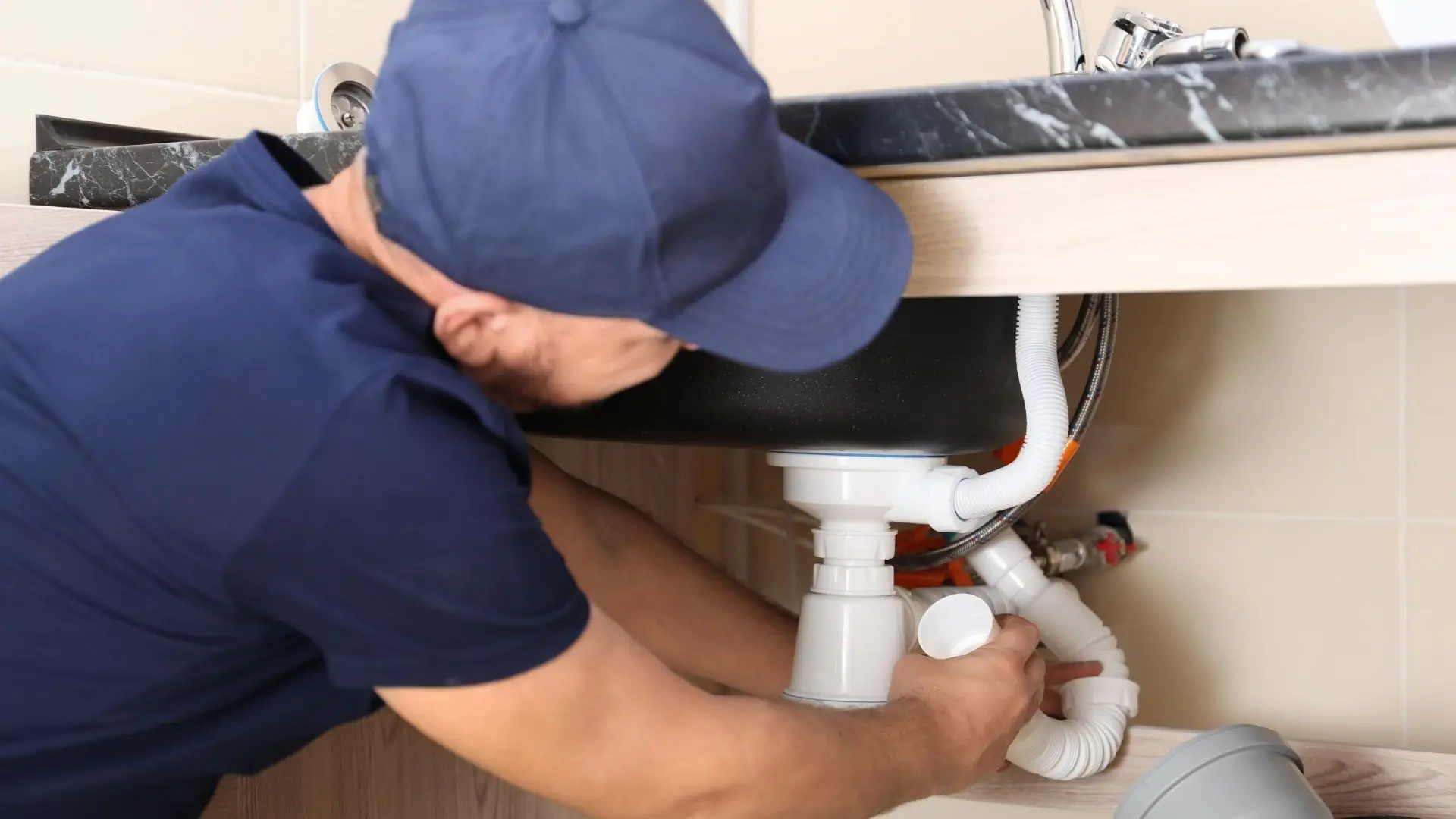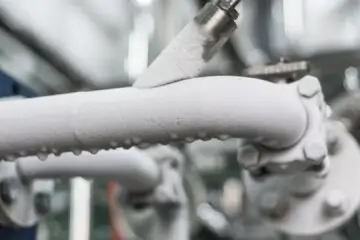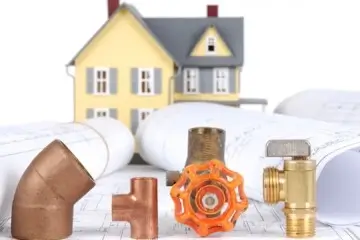Replacing lead pipes is crucial for safeguarding public health and ensuring clean, safe drinking water. Lead exposure can result in severe health issues, especially in children, underscoring the necessity of replacement. At CAN Plumbing and Drainage in Mississauga, our experts specialize in lead pipe replacement, employing cutting-edge techniques for optimal outcomes. Prioritizing the replacement of lead pipes allows us to focus on maintaining water quality and safeguarding your well-being. This proactive approach not only benefits your health but also enhances the long-term value of your property. Learn more about the economic advantages, legal requirements, and environmental benefits associated with transitioning to safer pipe materials.
Contact CAN Plumbing and Drainage for all your Pipe Needs
For efficient and professional assistance with your pipe needs, don’t hesitate to contact CAN Plumbing and Drainage in Mississauga. The replacement of lead pipes is crucial due to the health risks associated with lead water contamination. Lead pipes, commonly found in older properties, can contaminate the water supply with lead, posing serious health hazards. CAN Plumbing and Drainage in Mississauga specializes in replacing service lines to ensure clean and safe water for you. Our professional plumbers in Mississauga is well-trained to handle the complexities of lead pipe replacement using the latest techniques and equipment. Don’t compromise on the quality of your water – trust CAN Plumbing and Drainage in Mississauga for all your lead pipe replacement needs.

CAN Plumbing and Drainage Services Related to Pipes
At CAN Plumbing and Drainage in Mississauga, we specialize in effectively handling a range of pipe-related issues. Whether it’s dealing with frozen pipes in harsh winters or unclogging stubborn drains, our team has the expertise to address these common problems efficiently. You can rely on our prompt and professional services to ensure that your plumbing system remains in excellent condition. Contact us today!
Frozen Pipes
During the winter months, frozen pipes pose a significant threat to Canadian plumbing and drainage systems. When water freezes inside the pipes, it expands, leading to blockages and potential pipe bursts. Property owners need to be aware of the risks associated with frozen pipes, such as damage to the water service and the potential for expensive repairs. Along with structural damage, frozen pipes can disrupt water flow, impacting daily activities and creating health hazards due to limited access to clean water. To prevent frozen pipes, insulation and heat tape can be utilized to protect vulnerable areas. Property owners must take proactive steps to safeguard against frozen pipes and ensure the uninterrupted functionality of their plumbing systems during the cold winter season.

Clogged Pipes
In order to effectively tackle clogged pipes, thorough inspection and focused maintenance are essential components of CAN Plumbing and Drainage Services in Mississauga related to pipes. Clogged pipes can lead to significant issues within the water infrastructure, causing water loss and potential health risks. When left unattended, clogs can escalate, requiring costly line replacements and disrupting the flow of water. In older systems, such as those with lead lines, clogs can exacerbate the existing health risks led by these materials. CAN Plumbing and Drainage Services prioritize the timely detection and clearing of clogged pipes to guarantee seamless water flow and prevent further complications. Regular maintenance and inspection are key in addressing clogs promptly and maintaining the integrity of the overall water system.

Cost-Effective Solutions for Replacement
When considering cost-effective solutions for replacing lead pipes, it is crucial to analyze long-term benefits alongside upfront expenses. Health experts stress the importance of lead pipe replacement to prevent adverse health effects linked to lead exposure. The economic advantages of replacing lead pipes have been well-documented, with the Environmental Protection Agency proposing initiatives to support such efforts. By investing in lead pipe replacement, individual states can not only enhance the annual health outcomes of their residents but also realize significant benefits in terms of reduced healthcare costs and increased property values. Decision-makers must weigh the initial costs against the long-term advantages to make informed choices that prioritize both public health and fiscal responsibility.
Legal Requirements and Regulations
Compliance with legal requirements and regulations is crucial when planning the substitution of lead pipes. The lead and copper rule, established by the Environmental Protection Agency (EPA) in response to the health crisis caused by lead contamination, sets specific guidelines for lead service line replacement. The EPA estimates that there are millions of lead service lines still in use across the country, posing a significant risk to public health. To address this issue, various regulations govern the process of replacing lead pipes to ensure the protection of public health and the environment. Understanding and adhering to these legal requirements is essential to effectively managing the replacement of lead pipes and transitioning to safer materials..
Benefits of Transitioning to Safer Materials
After addressing the legal requirements and regulations for lead pipe replacement, it is clear that transitioning to safer materials offers numerous benefits for public health and environmental safety. The advantages of replacing lead service lines and shifting to safer materials go beyond just eliminating a major source of lead exposure. By replacing lead pipes with modern materials like copper or plastic, communities can protect public health, reduce the risk of lead contamination in drinking water, and improve environmental well-being. This proactive approach not only prevents potential health hazards but also results in significant health and financial benefits in the long run. Therefore, utilizing safer materials for the water distribution system is a crucial step towards ensuring a healthier and safer environment for all.

Health Risks of Lead Exposure
When considering the health risks linked to lead exposure, it’s crucial to recognize the harmful effects this toxic metal can have on human health. Lead poisoning, often resulting from exposure to lead in drinking water due to lead pipes, presents serious health risks. Studies have stablished a connection between lead exposure and various diseases, including cardiovascular issues. Removing lead pipes is essential in reducing these health risks and protecting public health. The consumption of lead-contaminated water can result in severe health complications, underscoring the importance of promptly addressing the presence of lead in drinking water. By taking proactive steps and replacing lead pipes, we can significantly decrease the risks associated with lead exposure and promote healthier living environments.
Environmental Impact of Lead Pipes
Replacing lead pipes is crucial not just for protecting public health but also for mitigating the environmental impact linked to the presence of these hazardous materials in water distribution systems. Lead pipes have the potential to release harmful contaminants into the water supply, resulting in increased lead levels that pose significant health risks to humans, such as neurological issues and cardiovascular disease. The environmental consequences of lead pipes go beyond human health, impacting aquatic ecosystems and wildlife. Through the replacement of lead service lines, we can minimize the release of lead into the environment, thereby preventing further contamination. This proactive approach not only safeguards public health but also helps to maintain the integrity of water systems and decrease the overall environmental burden caused by lead pipes.
Frequently Asked Questions About Pipes Near Me
How Long Does It Typically Take to Replace Lead Pipes in a Residential Property?
The replacement of lead pipes in a residential property typically takes around 1-2 days. This process involves shutting off the water supply, removing the old lead pipes, and installing new ones. It is a crucial step for ensuring health and safety standards are met.
Are There Any Financial Assistance Programs Available to Help Cover the Cost of Replacing Lead Pipes?
Financial assistance programs are available to help cover the cost of replacing lead pipes. These programs vary by location and may include grants, loans, or subsidies to support homeowners in addressing the issue effectively.
What Are the Potential Long-Term Benefits of Replacing Lead Pipes, Beyond Just Health and Safety Concerns?
Replacing lead pipes can bring about a range of benefits that go beyond health and safety concerns. It can enhance water quality, raise property value, and improve overall infrastructure. In addition, it reduces maintenance costs, supports environmental sustainability, and contributes to public health. These advantages have the potential to positively impact communities in the long term.
Can Lead Pipes Be Safely Removed and Recycled, or Do They Pose a Risk to the Environment Even After Replacement?
Lead pipes can indeed be safely removed and recycled when proper procedures are followed. However, if not handled correctly, lead can still pose risks to the environment even after replacement. It is crucial to implement appropriate disposal methods to prevent any harm to the environment.
Are There Any Specific Safety Precautions Homeowners Should Take During the Lead Pipe Replacement Process to Minimize Exposure Risks?
During the lead pipe replacement process, homeowners should ensure proper containment of lead particles, use personal protective equipment, ventilate the area, and dispose of materials safely. These precautions help minimize exposure risks and create a safer environment for everyone involved.
Please rate our website
Let us improve this post!
Tell us how we can improve this post?


